
 Flash News
Flash News
Veliaj's appeal to be heard today in the High Court
Today's hearing at the Fier Court, Salianji requests conditional release
Taxi collides with truck on Lezhë-Shkodër axis, driver taken to Trauma in serious condition
At least 91 dead in Texas floods
A decomposed body is found in Kolonjë, initial suspicions
Analysts: The European Union should rethink the framework of the Kosovo-Serbia dialogue
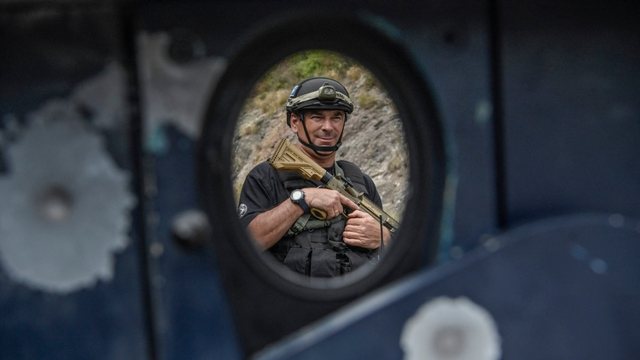
Days after the attack by the Serbian armed group in the northern part of Kosovo, experts on the developments in the Western Balkans criticized the approach of the international community in the region and said that the space left by the lack of engagement of the West in the region, including the stagnant process of European integration, has created a suitable ground for continuous tensions.
Sonja Biserko, head of the Helsinki Committee for Human Rights in Belgrade, has little doubt that official Belgrade is behind the attack by the Serbian armed group in the northern part of Kosovo. From the graffiti warning of the return of the Serbian army to Kosovo in the cities of Serbia to the evidence found by the authorities in Kosovo after the confrontation with the armed group, Ms. Biserko says it was clear that something was going to happen and that Belgrade is responsible. Based on the information so far, she says, it is clear that "some forces from Serbia went to Kosovo to provoke a conflict, so that the Serbian army could enter and establish the dividing line with Kosovo at the Iber River."
"Belgrade is aware that it has crossed the red line and is now trying, by any means, to reduce its role in this terrorist act," says Mrs. Biserko.
However, she also blames the West's approach to Serbia for this escalation.
Mrs. Biserko says that the international community has ignored the warnings of the leaders in Pristina because it sees Serbia as the main factor in the region and because of the Russian attack on Ukraine.
"Belgrade used the opportunity of this tolerance from the West throughout this year and a half, since the Russian aggression against Ukraine began, when the West returned to the Balkans, after almost 15 years of lack of engagement, to prevent the opening of a second front and they were hoping to bring Serbia to the West, which they have not been able to do," she says.
She adds that the region is at a critical point; the neighboring countries do not trust Serbia and that the general trend in the Western Balkans is negative.
"The whole region is convinced that Belgrade was involved in this case. And I would add that this has been Belgrade's goal for a while and it was waiting for the moment to realize this goal, in Kosovo and elsewhere. The problem of the West's policy and strategy in the region now is that because of the importance of Belgrade, which they consider as their priority, all the neighboring countries have been neglected and are being pressured to make concessions. As in Kosovo, as in Montenegro, as in Bosnia... Serbia is undermining all these states continuously, systematically," according to Ms. Biserko.
Përkundër thirrjeve nga Uashingtoni të këtyre ditëve për t’iu rikthyer dialogut të lehtësuar nga Bashkimi Evropian ndërmjet Kosovës dhe Serbisë, zonja Biserko e sheh fatin e tij të lidhur ngushtë me politikën që Perëndimi do të ndjekë pas sulmit të grupit të armatosur serb në Kosovë. Sipas saj, mes Kosovës dhe Serbisë nuk ka pasur dialog që kur është diskutuar ndarja e Kosovës dhe se Serbia po blen tani kohë për ndryshimin e rrethanave politike në Shtetet e Bashkuara me shpresë për ta rikthyer idenë e ndarjes në agjendë. Perëndimi, sipas saj, duhet të ndryshojë pozicionin e tij, tani të minuar, në Ballkanin Perëndimor.
“Nëse Perëndimi nuk ndryshon politikën, është vështirë të imagjinosh se ky dialog do të funksionojë,” shton ajo.
Mary Kaldor, profesore në Shkollën Ekonomike të Londrës dhe anëtare bordi e Këshillit Evropian për Politikë të Jashtme, thotë se angazhimi i Bashkimit Evropian dhe procesi i integrimit të Ballkanit Perëndimor në të ishte menduar si e vetmja rrugëdalje për rajonin.
“Procesi i integrimit në Bashkimin Evropian është me të vërtetë e vetmja zgjidhje për Ballkanin, ku çështjet e etnicitetit dhe kufijve shndërrohen në çështje minoritetesh, që paraqet problem më vete dhe një formë krejt tjetër për t’u përballur me të. Por, procesi i zgjerimit është ndalur dhe mendoj se kjo gjë është shndërruar në problem të vërtetë, dhe natyrisht është problematike që kjo mundësi më nuk po merret seriozisht,” thotë ajo.
Zonja Kaldor, që është bashkë-autore e Raportit të Kosovës, një përpjekje akademike për të kuptuar mësimet e dala nga lufta në Kosovë dhe ndërhyrja e NATO-s në vitin 1999, vlerëson se Perëndimi e ka vënë veten në pozitë të vështirë duke lënë çështje të pazgjidhura në rajon.
“Rusia është tani në pozitë të krijojë shumë telashe dhe po krijon shumë vështirësi. E kemi vënë veten në pozitë kur punët e pakryera, qoftë si koncept apo si problem konkrekt… vazhdojnë të jenë pika tensioni. Dhe kjo mund të keqpërdoret,” tha ajo.
Sipas saj, Bashkimi Evropian duhet të shihet si e vetmja zgjidhje për Ballkanin Perëndimor, por ky union duhet t’i rimendojë në tërësi përparësitë e veta.
"It is very, very disturbing, as it is disturbing for the rest of the world, that the wars that we saw in the Balkans are now happening in other parts of the world, in Africa and the Middle East... It is my concern that we are seeing a new social condition in which crime, ethnicity and violence are becoming a long-term poisonous combination," she said. "And for the European Union to survive this poisonous combination, for this poisonous combination not to affect the European Union itself, then a value new, that thinks about this, and not in terms of reaching agreements with ethnic movements, but the social situation must be changed, which means, to think about the economic and social aspect, climate change, human rights and the ways in which justice becomes meaningful."/voa
Latest news


Veliaj's appeal to be heard today in the High Court
2025-07-08 09:16:02
"Bad sign for democracy"/ Parliament neglects reporting by institutions
2025-07-08 09:04:56
Today's hearing at the Fier Court, Salianji requests conditional release
2025-07-08 08:56:39
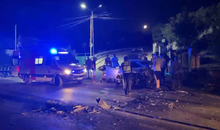

Horoscope, what do the stars have in store for you today?
2025-07-08 08:16:19
Weather forecast/ How temperatures will vary throughout the day
2025-07-08 08:02:37
Morning Post/ In 2 lines: What mattered yesterday in Albania
2025-07-08 07:48:30





Marrëdhënia që s’është romancë, por s’është as thjesht kolegiale
2025-07-07 21:39:13
Citizen is asked to pay 2.5 million for a non-existent meter
2025-07-07 21:28:03

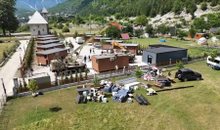


What is the ideal air conditioner temperature in summer?
2025-07-07 20:53:46
GJKKO left him in prison, Meta appeals the decision
2025-07-07 20:38:05
Where is Ronaldo after missing Diogo Jota's funeral?
2025-07-07 20:38:04

Messages from the author who killed Ilaria Sulla in Rome are revealed
2025-07-07 20:20:12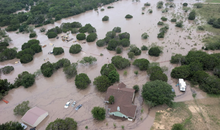
At least 91 dead in Texas floods
2025-07-07 20:12:02
Elbasan, choked by smoke, scorched by conscience
2025-07-07 19:48:16

Swarm of bees attacks citizens in France, 24 people end up in hospital
2025-07-07 19:32:03
Dementia/Hearing loss may be a warning sign
2025-07-07 19:13:06
The decision for Malltez, Gjokutaj: Boomerang for SPAK and the Court
2025-07-07 19:01:08

Former Supreme Court member acquitted of asset concealment
2025-07-07 18:36:40

WIIW expert in Politiko: Brain drain is steadily weakening the Albanian economy
2025-07-07 18:11:41
Heart health is at risk from extreme heat, here's what you should be careful of
2025-07-07 18:10:18
Today Gert Bogdani would celebrate, Edlira Çepani's touching dedication
2025-07-07 17:40:45
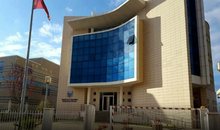





The striker severely accuses the Fenerbahce club: They tried to drug me
2025-07-07 16:21:03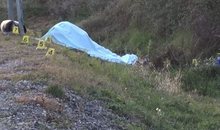
A decomposed body is found in Kolonjë, initial suspicions
2025-07-07 16:03:31
Accident in Saranda, car hits motorcycle, one injured
2025-07-07 15:58:56

The most fertile age for men and women
2025-07-07 15:40:52
Locals, Rama candidate in 5 municipalities
2025-07-07 15:32:22
Blushi: Meta's criminal kidnapping, incomparable even to Navalny's in Russia
2025-07-07 15:20:34
Meet the iPhone 17 Pro, the main innovations in design and technology
2025-07-07 15:09:09
Why the release of Abi Malltez does not free him; much less Albania
2025-07-07 15:00:12
‘Lidhjet klienteliste’ të mjekëve mbushin recetat e pacientëve
2025-07-07 14:57:33
Poland imposes border controls with Germany and Lithuania
2025-07-07 14:48:15

Caught transporting firearms from Kosovo to Albania, young man arrested (NAME)
2025-07-07 14:37:47
Theo Hernandez flies to Saudi Arabia for medical check-ups
2025-07-07 14:26:47


Scorching heat, Greece orders mandatory work holidays
2025-07-07 13:54:25


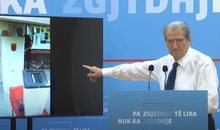

Trump expects Netanyahu to discuss Gaza ceasefire
2025-07-07 12:54:27

GJKKO releases Jamarbër Malltezi from house arrest
2025-07-07 12:35:02
Tourism among contrasts
2025-07-07 12:31:01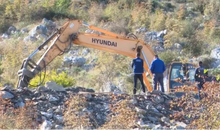
IKMT action in Theth, starts demolition of unauthorized constructions
2025-07-07 12:24:18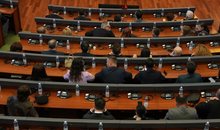

The Tirana-Kamëz line is destroyed by urban fire
2025-07-07 12:00:24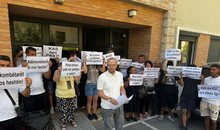




Poor direction!
2025-07-07 11:16:01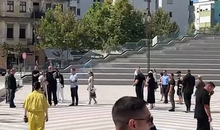


Rama to gather the country's mayors on July 9
2025-07-07 10:43:31
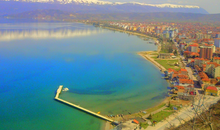
Ohrid Natural Park on the way to UNESCO's "black list"
2025-07-07 10:25:58

Registrations for the new school year begin in e-Albania
2025-07-07 09:59:09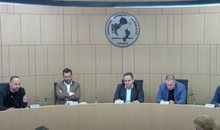
KAS decides the "fate" of the elections in four districts of the country today
2025-07-07 09:50:51
Rama does not give up on Vlora, visits the municipality again
2025-07-07 09:39:11


Fires in Gjirokastra, flames very close to cultural monuments
2025-07-07 09:12:49

Foreign exchange, the rate at which foreign currencies are sold and bought
2025-07-07 08:39:57

Horoscope, what do the stars have in store for you today?
2025-07-07 08:14:17
The week starts with scorching temperatures, the thermometer reaches 37°C
2025-07-07 07:58:36
Morning Post/ In 2 lines: What mattered yesterday in Albania
2025-07-07 07:45:15
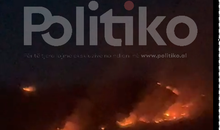


Theologian: Behind Rama's idea for a Bektashi state in Albania, Israel is hiding
2025-07-06 20:57:48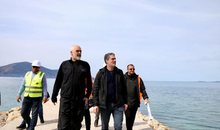
Rama's rhetoric without standards, comparing Paris, London, New York with Vlora
2025-07-06 20:35:52
